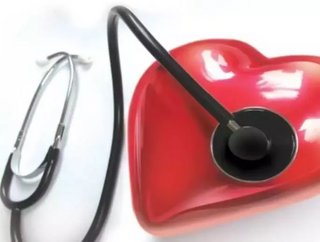Grief increases the risk of heart attacks by 21 times

A study has revealed that during times of extreme grief and bereavement the risk of having a heart attack is increased by an astonishing 21 times.
Researchers in the United States believe this is because extra strain is put on the heart during the first week of mourning the death of a loved one.
The first day of bereavement is when the risk of suffering from a heart attack is heightened by 21 times and for the rest of the week it is increased by six times.
The risk continues to be present for the first month after losing a loved one, although as the month progresses the risk does decline.
To read the latest edition of Healthcare Global, click here
- GSK seeking approval of lung drug Relovair by mid-2012
- Miscarriages ‘predicted’ by restricted embryo growth
- New cream can cure cases of skin cancer without surgery
Friends and families of those going through a period of intense grief are now being asked to keep an eye out for the warning signs of a heart attack – a shortness of breath and chest pains.
It is thought factors such as an increase in blood pressure, heart rate and levels of stress hormones all contribute to the increased risk.
These physical factors are then coupled with the fact that during times of grief, people tend to eat and sleep less than normal and could even miss medication.
The study investigated the events and possible causes of heart attacks in almost 2,000 adult survivors.
It was discovered that of these 1,985 people, 13.6 percent of people had lost a loved one in the six months prior to their attack.
Additionally, for 19 of the study’s participants, their heart attack came just one day after the death of a family member or friend.
Worryingly, 15 of those 19 people had no history of heart attacks.
Commenting on the findings, the study’s lead investigator Dr Murray Mittleman, from Harvard Medical School's Beth Israel Deaconess Medical Center, said: “During situations of extreme grief and psychological distress, you still need to take care of yourself and seek medical attention for symptoms associated with a heart attack.
“Caretakers, healthcare providers and the bereaved themselves need to recognise they are in a period of heightened risk in the days and weeks after hearing of someone close dying,” he added.
Meanwhile, Elizabeth Mostofsky, the author of the research, added: “Friends and family of bereaved people should provide close support to help prevent such incidents, especially near the beginning of the grieving process.
“During situations of extreme grief and psychological distress, you still need to take care of yourself and seek medical attention for symptoms associated with a heart attack,” she said.
The results of the study have been published in Circulation: Journal of the American Heart Association.
The Healthcare Global magazine is now available on the iPad. Click here to download it.
- The Abbott stent that saves lives and inspired a new appProcurement & Supply Chain
- Novartis anti-inflammatory drug could prevent heart attacksMedical Devices & Pharma
- 30 second eye test could help prevent heart attacksTechnology & AI
- EMRs help to keep costs down, say struggling hospitalsTechnology & AI






